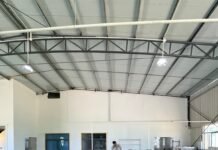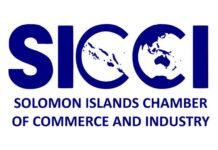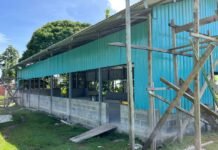BY ALEX DADAMU
FOLLOWING the surge in imported inflation in April 2022, inflation in the country is expected to rise to around 3-4% by end of 2022, driven by surging global fuel prices due to the Russian-Ukraine war, a new setback, on top of the COVID-19 pandemic.
This was according to Central Bank of Solomon Islands (CBSI) Governor, Dr. Luke Forau, who stated that the core Inflation is expected to rise to 4.7% on account of the pass-through effect of high fuel prices.
To elaborate, according to Investopedia extracts, imported inflation is a general and sustainable price increase due to an increase in costs of imported products while Core inflation is the change in the costs of goods and services but does not include those from the food and energy sectors. Food and energy prices are exempt from this calculation because their prices can be too volatile or fluctuate wildly.
Dr. Forau pointed out that the Solomon Islands economy was initially projected to decline by 7.3% in 2022, on the back of sluggish economic activity and on-going COVID-19 containment measures with declines expected across all sectors of the economy. This economic fallout was expected to bottom out over the medium term with some moderate rebound expected to start in 2024.
“However, with containment measures now fully eased as of 1st July this year and international border restrictions lifted, the economy is now expected to recover earlier than anticipated.
“Under these conditions, GDP growth has been revised upwards and is expected to contract by 4.3% in 2022 (i.e. a 3-percentage points upward revision) and to rebound by 1.9% in 2023.
“This is better than expected six months ago. All sectors, except for logging, are expected to recover in 2023.
“Risks to these forecasts however remain, and these include: (i) resurgence in COVID19 cases that would lead to reinstatement of restrictions in economic activities; (ii) natural and man-made disasters, and the prolong Russian-Ukraine war. All these would reduce GDP,” Dr luke Forau pointed out.
He said a concerted responses to enhance our economic resilience will help us navigate these challenges successfully now and in the future.
“Let us take advantage of the window of opportunities that come with these challenges to recover better and change our strategies by doing things differently, from a “business as usual” environment to delivering the changes needed to start recovery.”



































